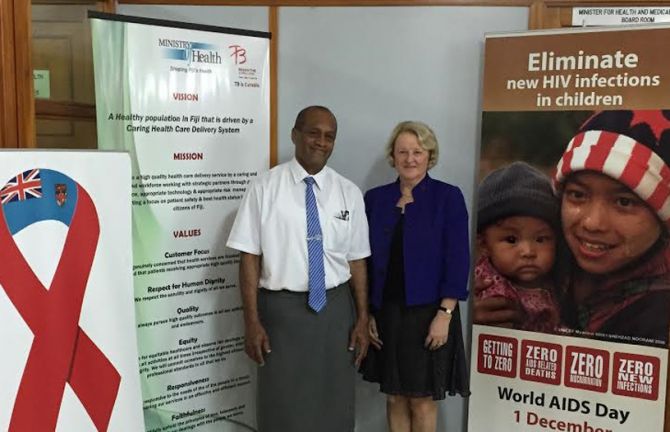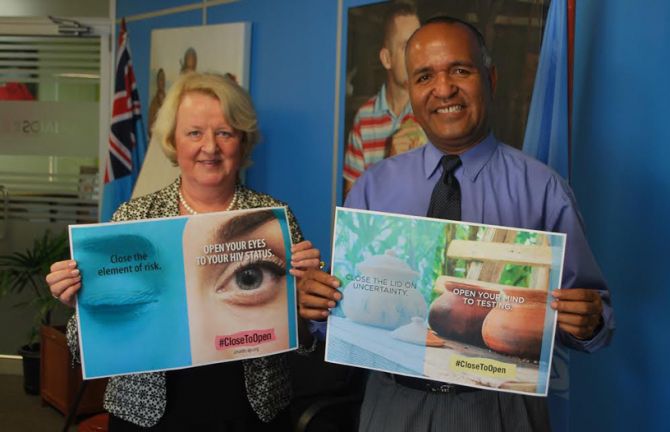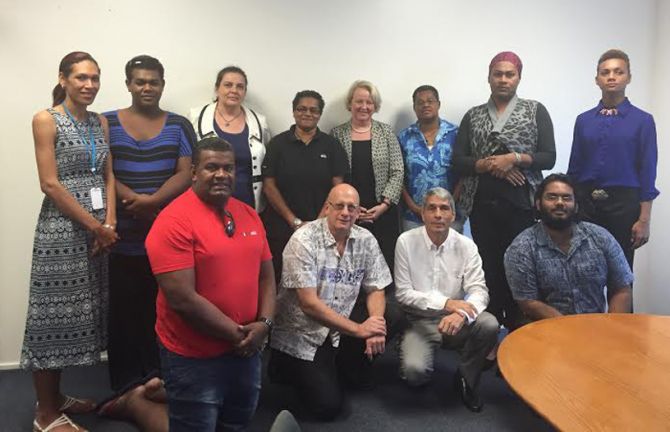



Feature Story
Fiji’s AIDS response provides lessons for broader sustainable development agenda
07 December 2015
07 December 2015 07 December 2015Fiji has a low-level AIDS epidemic, with fewer than 1000 people estimated to be living with HIV in 2014. A combination of engaged leadership, integrated multisectoral action, evidence-informed and rights-based approaches and people-centred partnerships are behind the country’s success in the response to HIV. The Fijian strategy provides important lessons to help ensure greater progress across broader sustainable development issues and goals.
“Fiji’s AIDS response has much to celebrate—and much to share,” said UNAIDS Deputy Executive Director Jan Beagle during her visit to Fiji from 30 November to 3 December. “There has been strong recognition that the most effective results can only be achieved through partnership, across sectors, through strong leadership and with community at the centre. By taking AIDS out of isolation, the impact can go far beyond the AIDS response.”
Partnership across government, communities, the health and education sectors and the United Nations system has led to focused prevention and treatment strategies and action. Responding to evidence of potential risk for key populations, Fiji has implemented a number of key policy and legal reforms, including decriminalizing sex between men and removing HIV-related travel restrictions and laws criminalizing HIV transmission or exposure.
Leaders in the country have consistently championed the HIV agenda, including through sustained activities to raise awareness in schools and among faith communities and the private sector.
In a meeting with Ms Beagle, President Jioji Konrote of Fiji expressed his personal commitment to continuing action on AIDS. Minister of Health and Medical Services Jone Usamate confirmed the country’s commitment to implementing the UNAIDS Fast-Track approach to increase action and front-load investments on HIV over the next five years and to end new HIV infections among children within the next two years.
“We need to continue the solid work in Fiji and use the experience and opportunity to strengthen efforts on climate change, noncommunicable diseases and gender-based violence,” he said, underlining the alignment of Fiji’s new National AIDS Plan with the UNAIDS strategy towards ending the AIDS epidemic by 2030.
Partners in the Fijian AIDS response agree that further scale-up must be continued to ensure sustained progress in the country and across the Pacific region.
“We cannot afford complacency on HIV and we need to keep it on the agenda, because we know that progress here is also having benefits across health, development, gender and rights issues,” said Speaker of the Parliament Jiko Fatafehi Luveni, a prominent advocate for HIV and women’s issues.
The newly elected Secretary of the Fiji Council of Churches, Simione Tugi, underlined the important role of faith-based communities and organizations across multiple religions to reach people in greatest need.
“Established networks, particularly within the faith community, help reach people even in hard to reach areas,” Mr Tugi said. “We will continue to be advocates for HIV through these structures so that we leave no one behind.”
Active involvement of people living with and affected by HIV is heralded by all partners as one of the key enablers for progress in the AIDS response.
Jokapeci Tuberi Cati of FJN+, Fiji’s network of people living with HIV, said, “We have made our voices heard and have been listened to, but we need ongoing focus, commitment and resources allocated to HIV. And we need to keep fighting stigma and discrimination for a more equal Fiji and safer society for all.”



